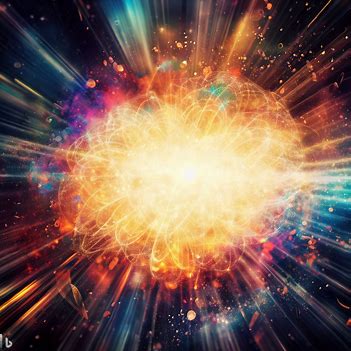Understanding the Big Bang Theory
Introduction

The Big Bang Theory is a widely accepted scientific explanation for the origin and evolution of the universe. It proposes that the universe began as a hot and incredibly dense point roughly 13.8 billion years ago and has been expanding ever since.
Discovery and Development
The theory of the Big Bang emerged from the observations of astronomer Edwin Hubble in the early 20th century. Hubble discovered that galaxies are moving away from each other, suggesting an expansion of the universe. This finding provided the groundwork for the Big Bang Theory.
Singularity
According to the Big Bang Theory, before the universe began expanding, it was in an ultra-hot and dense state called a singularity. At this point, all the matter and energy that now form the universe were concentrated in an infinitely small and infinitely dense space.
Rapid Expansion
The universe started expanding rapidly from the singularity, causing space to stretch and matter to cool down. During this expansion, fundamental forces and elementary particles formed, leading to the creation of atoms, molecules, and eventually stars and galaxies.
Cosmic Microwave Background Radiation
One of the most compelling pieces of evidence supporting the Big Bang Theory is the discovery of cosmic microwave background radiation (CMB). This faint radiation, detected in all directions of space, is considered the afterglow of the Big Bang and provides strong confirmation for the theory.
Formation of Elements
As the universe continued to expand and cool down, nuclear fusion occurred within the cores of stars, producing heavier elements like hydrogen, helium, and lithium. These elements became the building blocks for galaxies, planets, and life as we know it.
Expanding Universe
The discovery of the universe's expansion led to the formulation of the Hubble Law, which states that galaxies' distance from us is proportional to their redshift. This observation supports the idea that the universe is continually expanding.
Unanswered Questions
While the Big Bang Theory provides a comprehensive explanation for the universe's early stages, it also raises some unanswered questions, such as what happened before the singularity, the nature of dark matter and dark energy, and the ultimate fate of the universe.
Support and Confirmation
Despite some unresolved questions, the Big Bang Theory is supported by extensive observational and experimental evidence from various scientific disciplines, including astronomy, physics, and cosmology. It remains one of the most well-supported and influential scientific theories of our time.
Conclusion
The Big Bang Theory is a fundamental concept in cosmology, explaining the origin and evolution of the universe as we know it. From an ultra-hot and dense singularity, the universe underwent rapid expansion, leading to the formation of galaxies, stars, and all the elements essential for the existence of life. While some mysteries remain, the theory is a cornerstone of modern astrophysics and our understanding of the cosmos.
